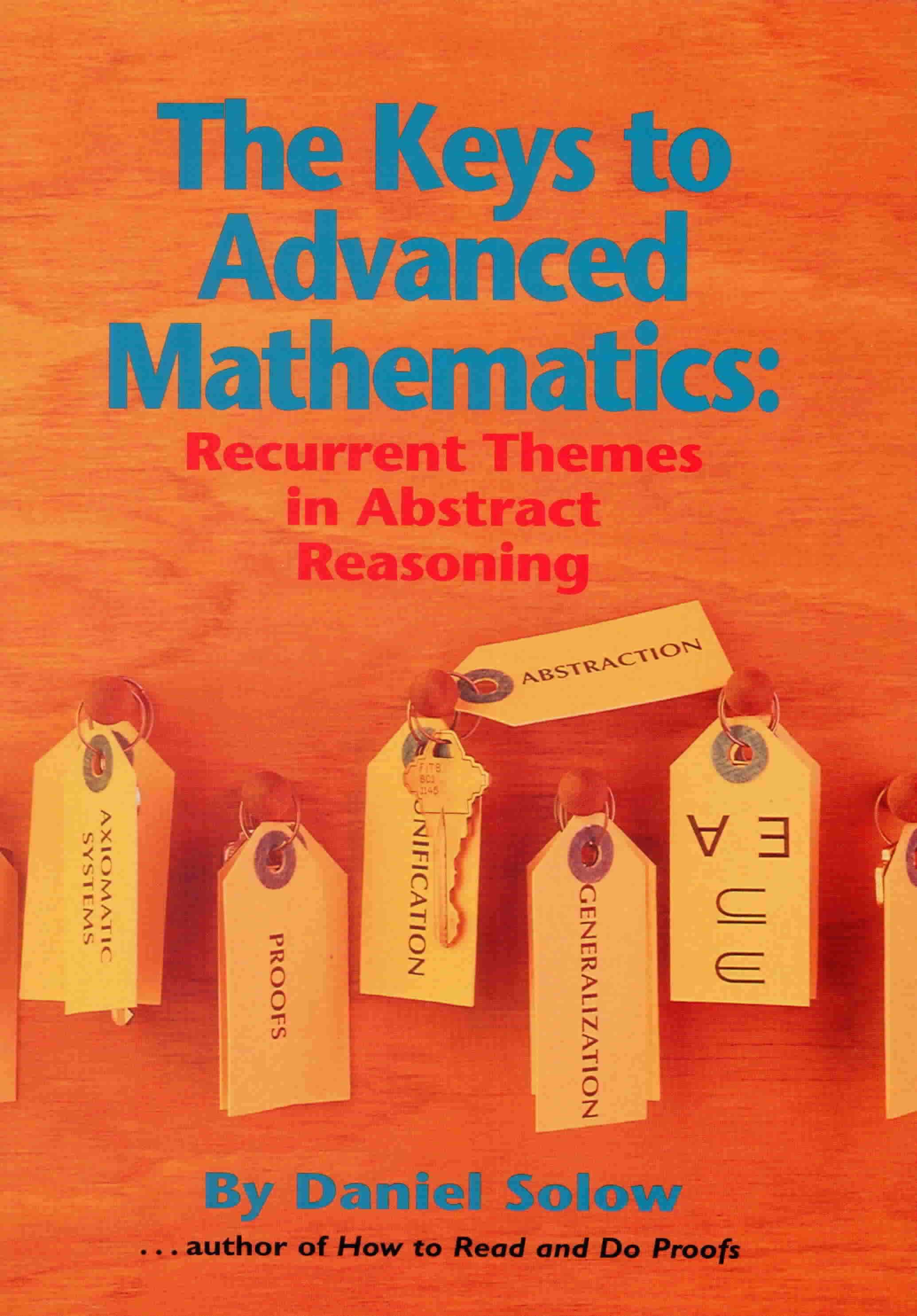
TEXTS: [SOL]
The
Keys to Advanced Mathematics : Recurrent Themes in
Abstract Reasoning by Daniel Solow (
Paperback, BOOKMASTERS,1995 )ISBN:9780964451902 |
| [FET] Proof in Geometry by A. I. Fetisov (Dover).ISBN:9780486453545 |
| [HOU] How to Think Like a Mathematician by Kevin Houston (Cambridge University Press, 2009) ISBN:9780521719780 |
| [SOS] Set Theory & Related
Topics by Seymour Lipschutz
(McGraw-Hill,1998) ISBN:9780070381599 |
SCOPE: This course will provide a foundation for further
work in mathematics.This will be accomplished primarily by
informal but careful and rigorous exploration of key topics
related to mathematical reading, writing , and reasoning. The work
will include a discussion of many of the essential tools for any
mathematical discourse and problem solving: sets, functions, and
relations; problems and conjectures; evidence, proofs and
refutations; and direct and indirect arguments.
Several topics from discrete mathematics will provide additional
opportunities for using these tools.
Lectures will organize the topics to present materials not
covered in the texts as well as those treated in the texts. We
will cover material from Solow contained in chapters 1 to 3, 5.1,
and 6.2.4; selections from Fetisov, Houston- all chapters; and
Lipschutz chapters 1-6. Supplementary readings and materials
will be supplied as appropriate.
Summaries of lectures and presentations may be available
occasionally through the course webpage and Moodle.
TECHNOLOGY: We may use the computer at various stages of this course to illustrate and investigate some of the topics. No particular software will be required..
TESTS AND ASSIGNMENTS:
The proof analyses and proofs without words will be graded Honors(4)/Good(3)/Credit(2)/Not Acceptable(1). (Accepted one day tardy at most!)
Regular Homework: Shorter problem assignments (about 5-10
problems) will be made on a regular basis for each class.
Homework
assignments will not be accepted after 5 p.m. of the due
date and will be graded
Well-done (4), Good (3), Acceptable (2), Unacceptable(1)
No Credit(0)
Reality Check Quizzes: During the term I will give several
reality check quizzes. These will usually be available and
submitted on Moodle, covering work from the previous recent
assignments and class discussions.
Midterm Examinations: There will be two self-scheduled mid-term examinations.These will be announced a week in advance and will be worth 100 points each. There will also be a mid term cooperative assignment worth 50 points.
FINAL ASSESSMENT: The final assessment will be in
two parts. Part I will be a partnership take home examination that
will be due on the last day of the final examination period.
AT MOST 3 PERSONS PER PARTNERSHIP! Part I will be
distributed on the Friday before the last week of classes.
Part
II will be an individual self-scheduled 120 minute examination
given during the final examination period.
Any student may take Part II of
the Final during the scheduled time: TUES Dec. 11 10:20-12:10 (Forestry Bldg 107)
Part II of the FINAL EXAMINATION
WILL SELF- SCHEDULED. Also possible are-MON
Dec. 10 10:20-12:10 (Forestry
Bldg 107) and MON Dec. 10 12:40-14:30 (Harry Griffith Hall 226) .
Part I will be worth 100 points. Part II will be worth 150
points or 300 points according to the following rule:
The final grade will use the score for Part II of the final
that maximizes the average for the term based on all possible
points.
GRADES: Final grades will be based on the accumulation of points in the various categories of assignments as indicated in the following chart:
| Proof Analyses | 25 |
| Proof w/o Words | 25 |
| Homework | 100 |
| Reality Check Quizzes | 50 |
| Midterm Examinations | 250 |
| Final Assessment Part I | 100 |
| Final Assessment Part II | 150 or 300 |
| Total Points........... | 700 or 850 |